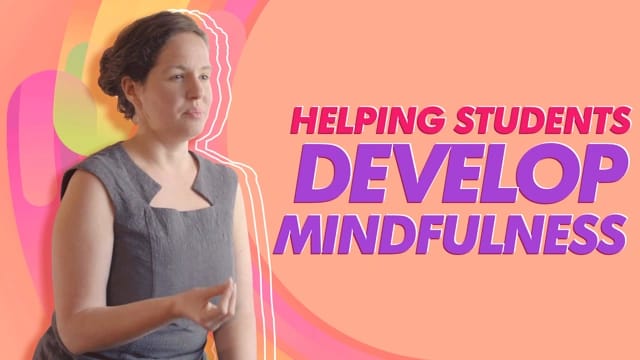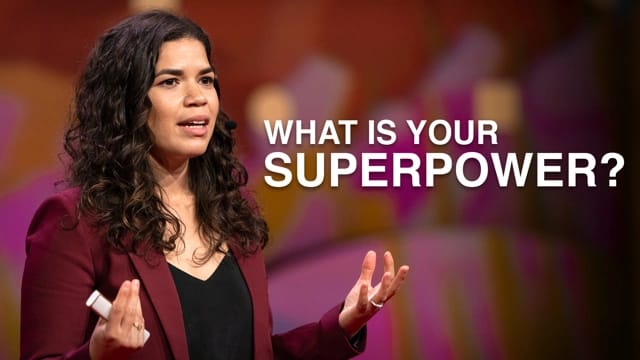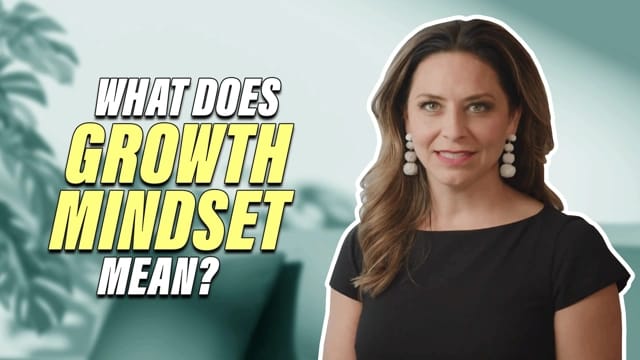10 Reasons to love teaching from a teacher
In this guide
I’m not going to lie: teaching can be challenging and hard and exhausting and underappreciated at times. You might find that it feels like a lot. HOWEVER, teaching is also one of the best jobs in the world and can be rewarding in ways you may never see or realise.
Whether it’s your first year teaching or you’ve been in the career for twenty years, you may have already discovered this. But, here are my top 10 reasons to love teaching.
As a teacher, you get to:
1) Be a role model

I think this is one that I would often dismiss. I don’t know if I struggled with Imposter Syndrome from time to time, or just forgot the gravity of my role as a teacher, but it didn’t often dawn on me that I was a role model for my students.
Whether they have other adults that guide, lead and inspire them, you are also one of them. In some cases, you may even clock more time with them than the other adults in their life. They see you everyday, and watch and learn from you.
This can maybe feel like a lot of pressure, but it’s also a privilege. You have the opportunity to help them navigate through not just whatever year group and subject you teach, but also through life.
As a teacher, you are also: a coach, a nurse, a counsellor, a referee, an entertainer, a cruise director and a parent. You might be saying to yourself, “wait, what? Parent? I’m not their parent!”, but believe me, there are times where I felt like I was their mother. Whether it was because they weren’t feeling well, needed guidance, were hungry, needed a shoulder to cry on, or just wanted a safe place to be, it felt a lot like being a parent.
As you stand in front of your class everyday, they are watching. They’re watching your attitude. They’re watching your body language. They’re watching how you respond and react to every student and adult.
Whether they’re in year 1 or year 11, they’re seeing you as a big part of their day, and are storing away in their brains how adults in their life behave.
2) Watch them grow

I don’t know about you, but I was always amazed by how much the kids changed from the beginning of the school year to the end. During those first weeks of school, they’re antsy, unsure of themselves, unaware of the rules and have an entire year of curriculum to learn.
But by the end? Wow. They’ve probably made friends, learned your rules and routines (and might even educate others, when they don’t know), and have grown by leaps and bounds.
I felt it was my honour to be a part of their learning journey. The changes made throughout the year were amazing to watch.
In fact, I would often collect a reflection or writing assignment at the beginning of the school year from each student, and then present it to them one of the last weeks of school. Man, the smiles and pride I would see in them.
And I believe that part of helping guide them through the school year is teaching them about Growth Mindset. It’s important for students to understand that although they may not know all the material or skills they’ll need that year, they can use positive self-talk to help motivate themselves to keep moving forward.
Here are a handful of videos that could inspire your students to anticipate, embrace and celebrate growth:
- Miniclips: Growth Mindset
- Future Skills of the Workforce-Igniting the Leaders of Tomorrow: Growth Mindset
- What You Need to Succeed: A Growth Mindset
This video is helpful in explaining how their brains are growing and changing: Understanding Wellbeing for Students: How My Brain Changes as I Grow Up
3) Be their cheerleader

This definitely relates to watching them grow. You get to cheer them on, as they make progress, learn and achieve their goals. It’s amazing to see their faces light up when they get the concept or pass the test.
But also, being their cheerleader means rooting for them in other ways. It means high-fiving them when they make the football team. It means sitting in the audience and clapping when they compete in the district spelling bee.
And even consoling them when they don’t make the first chair in the orchestra. Or when their football team loses the game. Or even when they don’t pass the history test you gave them.
Being their cheerleader is an opportunity to be behind them, no matter whether they win or lose. Just showing up and making sure they know you’ve got their backs. You’re there to celebrate with them and also encourage them when it doesn’t go their way.
Here are some videos that cover topics like grit, resilience, identity, and bravery that you can use to help them develop key skills to achieve as you cheer them along their life journey.
Trust me, they’ll remember that you were in the stands or at your desk or in the corridor when they achieved or struggled with something. It’ll mean more than you’ll ever know.
4) Help them build a bridge

Whether you teach primary or secondary school, part of your job is connecting and expanding on what they learned previously, but also preparing them for the next year (and possibly next school level). I call this “helping them build a bridge”.
During one school year, you are:
- assessing and gauging where they are to start;
- filling in any gaps from the previous year;
- building on their prior knowledge;
- and teaching them new material and skills.
It can be daunting and challenging at times. Maybe they are missing a lot of skills due to illness in the past (or perhaps didn’t engage in online learning when we were remote in early COVID times).
Maybe they have an undiagnosed disability. Maybe they have behaviour problems. Maybe your teaching style and techniques differ from those of their previous teacher. There are so many variables as to why there may be some roadblocks in getting all of your students on the same track and prepared for what’s to come.
But what a privilege it is, to help them take the knowledge they showed up with, and combine it with new information, and then send them “across the bridge” to the next phase. You should be proud of being a part of that journey. I know I always was.
5) Start fresh every year
This one is kind of a mixed blessing, in my opinion. I’m generally not a big fan of change. I like things to be predictable. So, a new school year definitely stretched me every time.
However, it was also a chance to start fresh and do things differently. Maybe with new decorations and aesthetics in the classroom. Maybe approaching the curriculum in a new way. Maybe trying new activities.
It also meant meeting new students and having new experiences with them. Every year I had the joy of influencing a brand new set of kids and making a difference.
Honestly, I was never a real big fan of the first day of school. I didn’t like that the kids didn’t know me and I definitely didn’t know them. I had to double-check schedules and rosters and teach kids the rules and procedures.
But, after we got the ball rolling on the school year, I was always glad that we had started new. It was the start of new adventures and memories, for both the students and for me.
6) Create lifelong connections with students

For the majority of my career, I taught KS3. This meant I was not the first nor their last stage of schooling.
But I did get to be a part of the phase where they were coming into their own and figuring themselves out. And are often seeking teachers that “get them”.
This means that if I took the time to build rapport and connect with them, they were more likely to contact me after the school year was over. This might look like them saying ‘hi’ in the corridor as they passed me by.
It also meant they sent me graduation invitations and baby announcements. Messaged me on social media (after they graduated, of course). Wanted to meet for coffee and chat.
I have received letters, cards and notes from many students over the years, thanking me for being an important part of their lives and wanting me to know how they’re doing. Here’s an actual example of a note I received in the mail just this last December, from a student that has kept in contact with me for years, post-graduation:

I will never take these relationships for granted. I’m so blessed to be a part of their life story and get to see everything they’ll accomplish in the future.
7) Create lifelong connections with other teachers
I taught for 21 years, in many schools and areas. This means that I worked with hundreds of fellow educators along the way.
Like any job where you have coworkers, you have an instant bond of being “in the trenches” together. You understand what it’s like, and have the job in common. No one else in your life really gets it.
But with teaching, I think it’s extra special. You often share the same year group, subject, and possibly students. This gives you so many opportunities to connect and relate to each other. About the good and the bad.
It may start with just sitting in meetings together, sharing ideas or working side-by-side on a goal or plan. Or, you have lunch at the same time and sit together in the teacher’s lounge. You might even attend a conference over a long weekend together.
But then you might start meeting after school to brainstorm lesson plans. Or meet for coffee or happy hour. Maybe you meet up in the summer, to team up for some project.
And then, some of those connections turn into true friendships. I’ve had many over the years. You turn to them for more than just school-related issues. You find you have some interests, hobbies or life situations in common.
They invite you to their birthday party. You invite them to a concert. Your families begin to hang out. You text them just because. You cry on their shoulder when life throws a curveball.
I have kept in contact with teachers I worked with in other states, and have enjoyed continuing to communicate with them, and be involved in their lives. Every once in a while, I’ll get a message from someone I taught with years ago, who will update me on a shared student that they ran into.
In some cases, they have become some of my very best friends. Teaching brought us together, but that eventually became one of many reasons they were important to me. I have a few “ride or die” friends that I met just because we were working at the same school.
And man oh man, I believe these relationships are essential. We need these people in our lives. They will not only be a wonderful support system while you’re working together but for many years to come.
8) Have a great schedule

On one hand, it really annoys me when people tease teachers because they get “so many breaks during the year”. And although I feel teachers deserve every break they’re given, as they usually work long days and put in their own time, and the job itself can be thankless and exhausting, the comment is true. The breaks are nice.
We get Christmas break, Easter break, summer holidays, and usually various other days off throughout the year.
It’s so convenient to have time off throughout the year, especially if you have your own children at home. I was a teacher before I had children, so by the time my kids came along, they knew no other life than to be a teacher’s kid.
This meant that Mum was always home during breaks. I was able to take them to museums, zoos, pools, the movies, parks and lots of other activities during the day. They knew I would be around to spend quality time with them.
The breaks were also predictable, so it made planning family vacations or events easier. I was always going to be off for two weeks in December. I was always going to be off for several months in the summer.
I often said that I got to be a temporary stay-at-home mum several times a year. Especially in the summer. That was a really sweet time to be home, especially when the kids were little. We could celebrate breaks together and enjoy our shared downtime. Even as my kids got older and had social lives of their own, I know they appreciated that mum was available and on a break as well.
Even for teachers who do not have their own children, it’s a nice arrangement for anyone. They can plan their lives around scheduled time off, to visit friends and family or to travel.
Now, I will also say that most teachers I know do not stop working entirely during breaks. Or at least during the summer. There are workshops, trainings, meetings, planning and setting up classrooms that happen during that time.
I would usually give myself about half of the summer to rest, but somewhere a few weeks in, I’d end up back at school trying to get things done. I just couldn’t imagine waiting until the official return date the week before school starts to do what needs to be done. I like to pace myself and feel fully prepared for the next year.
I often enjoyed rearranging and redecorating my classroom in the summer. Or sometimes I moved classrooms, subjects or even schools, so there was much to be done before the fall. I would also have supplies and items to haul in ahead of time.
But even still, a teacher’s schedule of periodic breaks throughout a calendar year is definitely a perk.
9) Be silly and goofy
I don’t know about you, but I have done some silly and crazy things as a teacher. And kids ate it up.
During a pep assembly one year, I dressed up in an inflatable Sumo costume and attempted to wrestle a fellow teacher. I sat in a dunk tank during a field day, and students got to throw baseballs at a target to drop me into the water. I participated in a flash mob dance during an assembly.
I dressed up for Crazy Hair Day and Decades Day and others during Spirit Weeks. A couple of years ago, we pranked students during their Dress Like a Teacher Day, and we dressed up like students.
I wore costumes on Halloween. I wore reindeer antlers around Christmas.
I always loved being a little silly and childlike as a teacher. The kids really enjoy seeing their teachers loosen up and participate in this way. Not a lot of jobs let you get away with that.
And lastly…
10) It makes you a better person
I firmly believe that the fact that I was a teacher made me a better human. I learned empathy, compassion and flexibility in ways I wouldn’t have otherwise.
I often told people that being a teacher made me a better mum, and being a mum made me a better teacher. I have learned so much from both roles.
Being a teacher changes you. You get a snapshot of the lives of so many kids, good and bad. You’re their cheerleader and role model. You’ve celebrated with them. Maybe even cried with them. You have been silly in front of them.
And if you’re lucky, you’ll get to hear from them, even years after they’ve left your classroom.
It is one of the hardest but most rewarding jobs in the world.
References
- Rahman, Fahim. 2022. “The Importance of Connections and Role Models in Education.” Class Teaching. https://classteaching.wordpress.com/2022/06/26/the-importance-of-connections-and-role-models-in-education/

Rebecca Robison
briefcase iconEducational Consultant/Middle School Teacher
Rebecca Robison is a former teacher with over 20 years of experience, ranging from 1st grade to 8th grade, and in multiple subjects. She retired from teaching in 2023, and has been working for ClickView ever since as an Educational Consultant and Blogger.
Other posts
Want more content like this?
Subscribe for blog updates, monthly video releases, trending topics, and exclusive content delivered straight to your inbox.
















